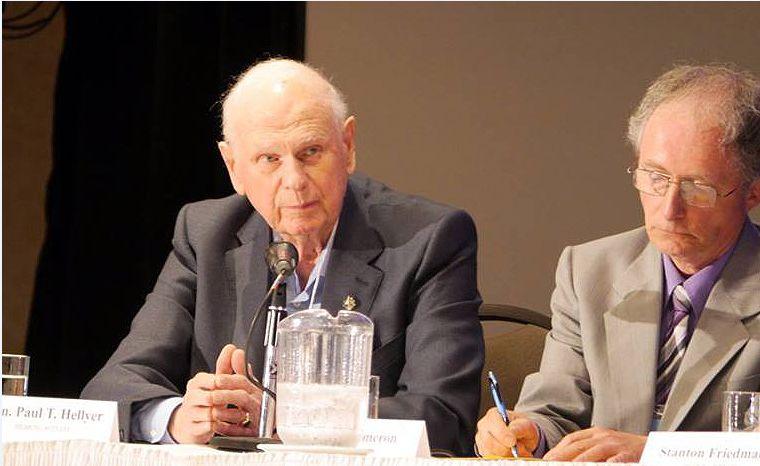BRANTFORD, Canada—Former high-level government officials were among the panelists at a June 25 hearing calling for disclosure of any remaining classified government information on unidentified aerial phenomena (the new preferred term for unidentified flying objects, or UFOs).
Nick Pope, who handled the UAP files for the U.K.’s Ministry of Defence in the early ‘90s, testified at the hearing in Brantford, Canada. The Hon. Paul Hellyer, former minister of defense for Canada (1963 to 1967) and deputy prime minister under Pierre Trudeau, also testified.
The other panelists were Stanton Friedman, a nuclear physicist and UAP researcher; Travis Walton, an alleged abductee whose story was made famous in the 1993 movie, “Fire in the Sky”; Grant Cameron, a Canadian UAP researcher who has examined stacks of documents received through Freedom of Information Act (FOIA) requests; Richard Dolan, a prominent UAP researcher who first delved into U.S. government files on UAPs 22 years ago while writing a doctoral dissertation on the presidency of Harry Truman; and Steve Bassett, the executive director of the Paradigm Research Group, which advocates for disclosure of all government UAP knowledge.
Hellyer said he had heard about UAP sightings while he served as minister of defense, but he was never briefed on any intimate, hidden knowledge of the UAP phenomenon. He began researching UAPs and speaking out about them in 2005, after he had already left public service.





